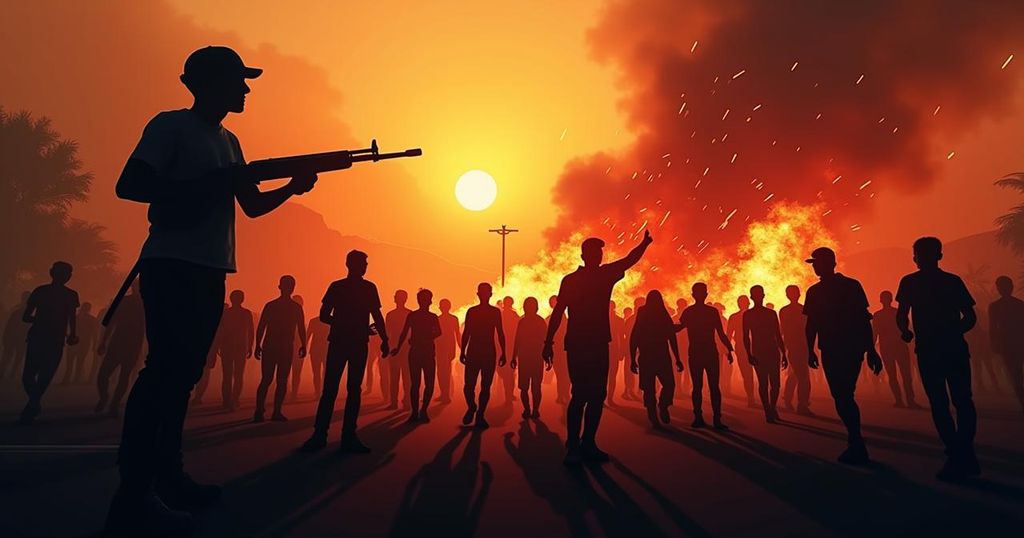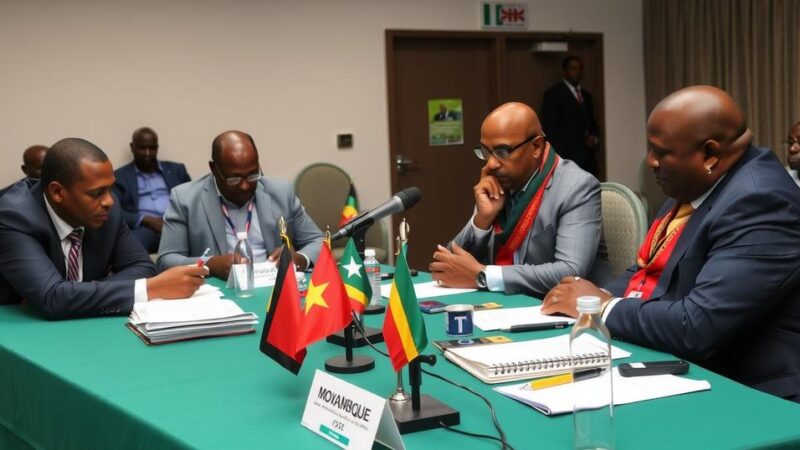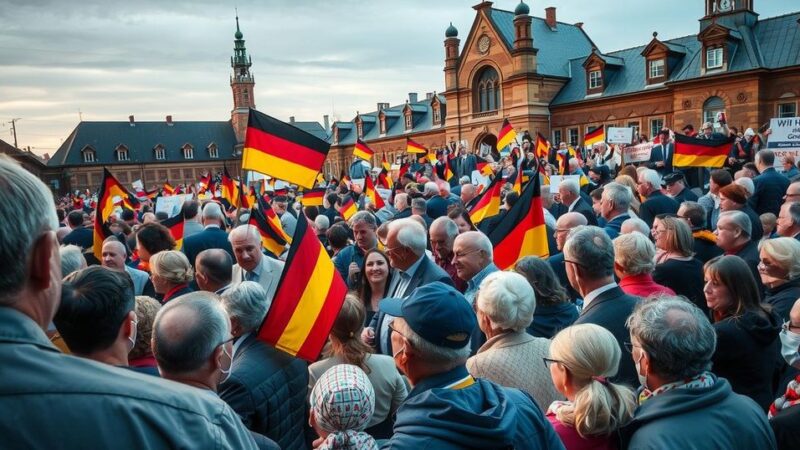Following a contested presidential election that secured Nicolás Maduro a third term, Caracas erupted in protests, leading to widespread arrests and allegations of terrorism against demonstrators. Families are left anguished, seeking information about missing loved ones amid an increasingly authoritarian regime. The aftermath of the protests stands as a stark reminder of the economic crisis and social divides reshaping Venezuela.
In Caracas, the oppressive Caribbean sun bore down upon individuals gathered before the Zone Seven Detention Center, a place now synonymous with the harsh consequences of political dissent in Venezuela. Following the controversial announcement of presidential election results, which afforded Nicolás Maduro his third consecutive term in office, numerous families assembled in a seemingly endless line, seeking information about their loved ones who had been apprehended amid the unrest. Many viewed Maduro’s administration as increasingly authoritarian, furthering dissent against what was perceived as a fraudulent electoral process, with many nations globally rejecting the results. Among those present was Hernán García, a father searching for his son Luis, who had recently embarked on his first protest against the election results and subsequently vanished. Despite hearing from neighbors that Luis had been taken into custody, Hernán’s pleas for information were met with silence after nearly two days of waiting. Hernán shared his despair and confusion: “I mean, why don’t they tell me anything about him? And I go and ask, and they still don’t tell me anything.” Grounded in the impoverished Petare neighborhood, which historically has served as a bastion of Chavismo, Hernán and Luis’s reality mirrors the transformation occurring within Venezuela. For the first time since the inception of the Chavista regime, large segments of the impoverished population have taken to the streets to express their grievances. Under the late Hugo Chávez, an extensive poverty alleviation campaign resulted in millions being lifted from destitution. This was largely facilitated by soaring oil prices, which empowered the government with the financial means to subsidize basic needs while stifling economic diversification. However, the death of Chávez in 2013 marked the commencement of a profound economic crisis under Maduro’s leadership. Within a brief period post-Chávez, nearly eight million Venezuelans, approximately 25% of the population, have fled amid the country’s descent into a dire humanitarian crisis. This mass exodus primarily includes the nation’s most impoverished citizens who are relentlessly pursuing better living conditions abroad. Life for those remaining is fraught with challenges. Venezuelan citizens, even in Chávez’s last resting place in the 23 de Enero neighborhood, voice their frustrations with governmental corruption and economic hardship. Amid the discord, a distinct division emerged among the populace regarding belief in Chavismo and its associated narratives, with many attributing the nation’s woes to external factors such as U.S. sanctions. The aftermath of the contested election results was marked by widespread unrest and confrontations between protestors and security forces. Tensions escalated, resulting in numerous fatalities and an alarming number of arrests, with over 2,000 individuals reportedly detained under accusations of terrorism and orchestrating a coup against the state. Maria Corina Machado, a prominent opposition figure, subsequently discouraged participation from the lower socio-economic strata in her protests, notably contrasting with the earlier protestors primarily hailing from the poorer communities.
The political landscape in Venezuela has been profoundly shaped by the legacy of Hugo Chávez, whose rise was bolstered by an effective income redistribution framework that lifted millions from poverty through oil wealth. However, the subsequent downturn in oil prices post-Chávez led to severe economic challenges that escalated under Nicolás Maduro’s administration, inciting widespread public dissent. Increasing authoritarianism has generated unrest, as evidenced by the violent crackdown on protestors following the disputed election results of July 28, which resulted in widespread detentions, further exacerbating the humanitarian crisis in the nation. This backdrop of dissent highlights the stark contrast between the historical supporters of Chavismo and the new wave of protestors emerging from traditionally loyal communities.
The events unfolding in Venezuela illustrate a nation in turmoil, caught in the throes of a deepening humanitarian crisis exacerbated by political repression and economic despair. The contrasting perspectives within society — from historically loyal Chávez supporters to the disillusioned impoverished protestors — reveal a significant shift in the public’s tolerance for the current regime. The systematic arrests and allegations of terrorism against protestors signal a chilling reality for those who dare to dissent, thus complicating the future of Venezuelan politics and society.
Original Source: www.thestkittsnevisobserver.com







